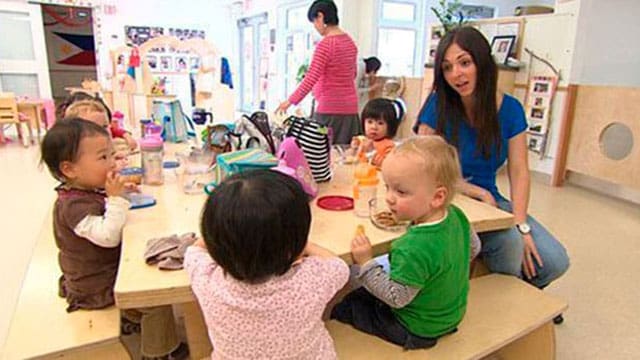Federal restrictions on the childcare program are creating shortages and delays in Alberta
 The $10-a-day childcare program is failing. That was the main takeaway when 150 childcare providers from across the country recently converged online to compare notes about the federal program. Plainly evident is the vast gulf between the federal government’s grand vision for child care and the actual experience of providers and the parents they serve.
The $10-a-day childcare program is failing. That was the main takeaway when 150 childcare providers from across the country recently converged online to compare notes about the federal program. Plainly evident is the vast gulf between the federal government’s grand vision for child care and the actual experience of providers and the parents they serve.
Things are bad enough that Alberta should really re-think its entire participation in the federal scheme.
Near daily media reports point to a shortage of subsidized spaces and the early childhood educators needed to staff them. Structural issues with the plan and the provincial-federal agreements that govern the program mean there are only enough spaces for a minority of children.
Alberta is a prime example of the federal vision being the proverbial square peg meeting a round hole. A new Cardus report examining the program’s first year found that many of the province’s year-one targets were missed or delayed. In fact, nearly 75 percent of the year-one funding was deferred until the second year.
 |
| Related Stories |
| We need to reconsider childcare funding strategies in Canada
|
| Universal daycare anti-mother social engineering
|
| The folly of embracing universal daycare
|
The federal government has restricted for-profit childcare providers from receiving federal funds for space creation. This is a problem for provinces such as Alberta, where for-profit operators provide most spaces. Alberta negotiated with the federal government for a limited portion of new spaces to be created in for-profit childcare, but the restrictions on for-profit care are choking off growth. The fact that the province has negotiated two amendments to increase the number of spaces that can be created in for-profit care shows how disconnected the federal plan is from reality on the ground in the province.
There are only enough highly subsidized spaces for a minority of children under age six. Numbers obtained by Radio Canada show that space creation is well behind the targets laid out in the agreements. Chances are slim, at best, that the program will meet its goals by the time the agreements expire in 2026.
Despite this looming failure, the federal government insists provinces follow Ottawa’s grand vision. According to the 2024 federal budget, an additional $1 billion will be available for childcare space expansion loans. Once again, for-profit providers are ineligible, meaning provinces like Alberta are at a disadvantage.
A 2021 Cardus report predicted that the costs for the national childcare plan would blow past federal expectations and the program’s rollout would sputter because of its complexity. And provinces would be left to clean up the mess. Just this spring, Prime Minister Justin Trudeau pointed a finger at the premiers for failing to meet targets, stating that some provinces “are looking to not deliver child care or even cut childcare services.”
That’s simply untrue. If anything, the federal government is undermining its own expansion targets by restricting the amount of space creation funding to for-profit providers. The prime minister went on to claim that the federal government is advocating on behalf of parents to push provinces to deliver savings.
Unfortunately, as the data shows and operators will confirm, the program’s poor implementation is not limited to certain provinces. It’s a nationwide problem.
The truth is that the federal government does not create spaces, legislate or regulate childcare, or have any other function beyond cutting cheques with long strings attached. Childcare is provincial jurisdiction, and the federal government is far removed from your child’s cubby space.
Moving forward, the provinces must re-evaluate their relationship with the federal government on this issue. The current $10-a-day agreements expire in March 2026 and funding amounts increase year over year until that point. The 2024 federal budget, however, provides a glimpse of what is to come. The government projects a slight decline in $10-a-day funding starting in 2027-2028 [table Ai.7]. Who will make up the shortfall as federal funding dries up?
Rather than struggling to implement a grand, made-in-Ottawa plan, Alberta should negotiate for greater flexibility while dissolving its reliance on federal money. It makes little sense for any province to be complicit in slowly starving primarily female-led, for-profit providers out of business. Not long ago, Alberta provided parental subsidies for diverse forms of care – the type of care parents already use.
Why continue to be stuck to a poorly conceived federal plan?
Peter Jon Mitchell is family program director at Cardus, a public policy think tank.
For interview requests, click here.
The opinions expressed by our columnists and contributors are theirs alone and do not inherently or expressly reflect the views of our publication.
© Troy Media
Troy Media is an editorial content provider to media outlets and its own hosted community news outlets across Canada.

